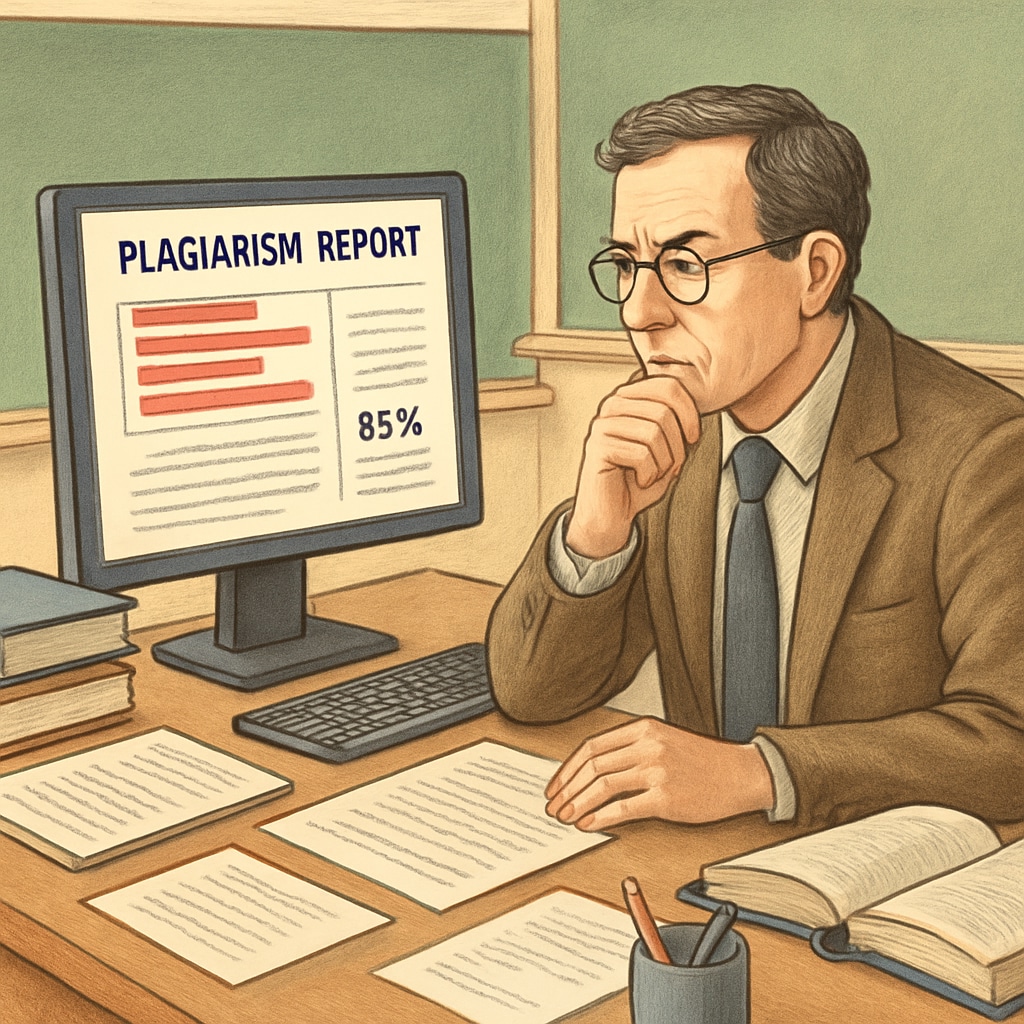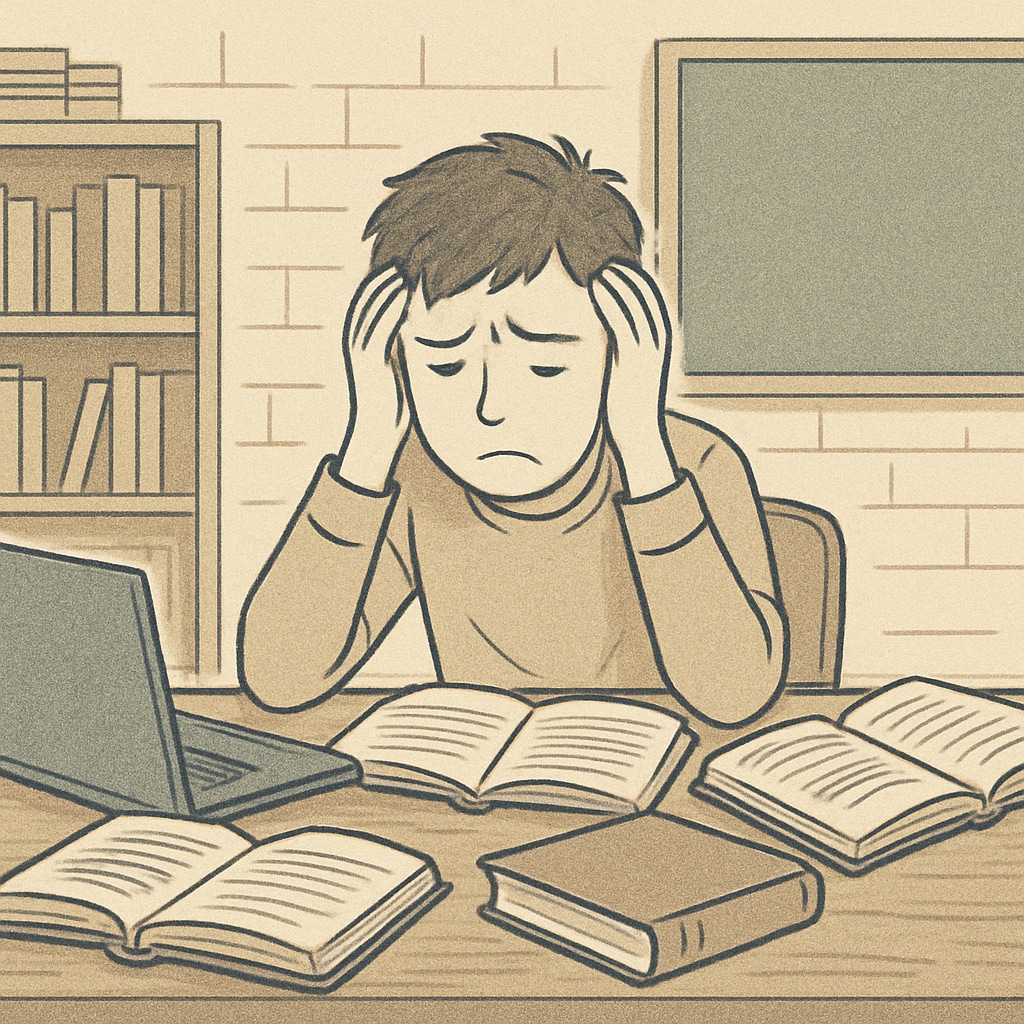Accusations of academic dishonesty are a serious matter. However, when professors mistakenly accuse students of plagiarism, the repercussions can be devastating. Such unjust accusations not only harm the student’s reputation but also undermine trust in the academic system. In this article, we examine the reasons behind these errors, the impact on students, and the importance of implementing fair evaluation mechanisms to safeguard student rights while upholding academic integrity.
Why Do Professors Make Mistaken Accusations?
Professors often have good intentions in maintaining academic honesty, but errors in plagiarism accusations can occur for several reasons. One key factor is the heavy reliance on plagiarism detection software. While these tools can identify similarities between texts, they fail to account for nuances like proper citation or common knowledge. For example, a student might be flagged for using widely accepted definitions, even if the content is not plagiarized.
Another contributing factor is unconscious bias. Professors may unintentionally judge students based on past academic performance, language proficiency, or other stereotypes. For instance, international students or those with limited writing skills may be more likely to face scrutiny.
Finally, time constraints and workload pressures can lead professors to make hasty judgments. Many educators struggle with large class sizes and limited time, which can result in less thorough investigations of potential plagiarism cases.

The Impact on Students: A Heavy Burden
Being wrongly accused of plagiarism can be a traumatic experience for students. It not only affects their grades but also damages their self-esteem and mental health. Students may feel isolated, ashamed, or stigmatized, especially if the accusation becomes public within the academic community.
Furthermore, such accusations can have long-term consequences. A record of academic dishonesty, even if it is later overturned, can hinder a student’s future opportunities, including scholarships, internships, and graduate school admissions. This can be particularly detrimental in competitive fields where integrity is paramount.
Finally, these incidents erode trust between students and educators. When students feel unfairly targeted, they may become disengaged from their studies, leading to lower academic performance and reduced participation in class discussions.

Solutions: Toward a Fair and Transparent System
To prevent unjust plagiarism accusations, educational institutions must adopt more robust and equitable evaluation processes. Here are some key recommendations:
- Provide comprehensive training: Professors should receive regular training on plagiarism detection tools, bias awareness, and fair evaluation practices.
- Encourage dialogue: Before making accusations, professors should discuss their concerns with the student. This allows students to explain their work and provide evidence of originality.
- Establish clear policies: Institutions should have transparent guidelines for handling plagiarism cases, including an appeals process where students can challenge accusations.
- Improve detection tools: Plagiarism software should be refined to distinguish between intentional copying and legitimate use of common phrases or cited material.
- Foster academic support: Providing resources like writing centers and workshops can help students develop strong writing and citation skills, reducing accidental plagiarism.
By taking these steps, educators can create a more supportive and just environment that prioritizes both academic integrity and student rights.
Conclusion: Balancing Integrity and Fairness
Professors play a critical role in maintaining the integrity of academic institutions, but they must also ensure that their methods are fair and unbiased. Mistaken accusations of plagiarism can have lasting negative effects on students, highlighting the need for careful evaluation and open communication. By addressing the root causes of these errors and fostering a culture of fairness, educators can protect both the principles of academic honesty and the well-being of their students.
As we navigate the complexities of modern education, it is essential to remember that the pursuit of integrity should never come at the cost of justice. By working collaboratively, professors, students, and institutions can build a system that upholds the values of fairness, trust, and mutual respect.
Readability guidance: This article uses short paragraphs, clear transitions, and structured lists to enhance readability. The tone remains professional, with minimal passive voice and jargon explained where necessary.


